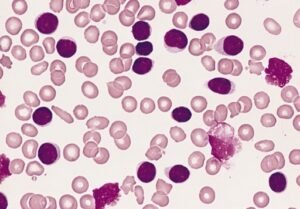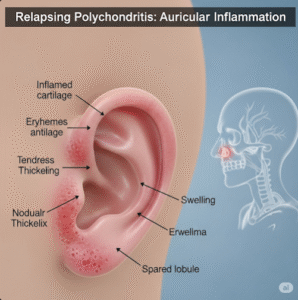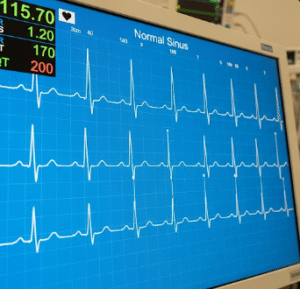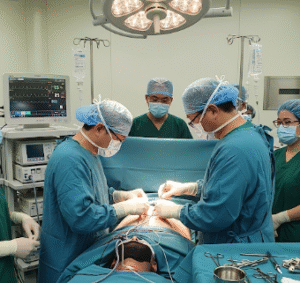Overview
Pregnancy warning signs are symptoms or changes in a woman’s body that may indicate potential complications during pregnancy. Early detection of these warning signs is crucial for the health of both mother and baby. Pregnancy is generally a natural and healthy process, but complications can arise at any stage, requiring timely medical evaluation and intervention.
In Korea, maternal health clinics and obstetrics departments provide comprehensive monitoring, early detection, and treatment strategies to ensure safe pregnancy outcomes. Recognizing warning signs empowers women to seek prompt care and reduce risks of severe complications.
➤ Symptoms indicating potential pregnancy complications
➤ Early recognition can prevent maternal and fetal harm
➤ Medical evaluation is essential for abnormal signs
Key Facts
➤ Pregnancy complications affect approximately 10–15% of pregnancies worldwide.
➤ Warning signs can appear in the first, second, or third trimester.
➤ Common warning signs include vaginal bleeding, severe abdominal pain, severe headaches, reduced fetal movements, and sudden swelling.
➤ Korean hospitals use advanced monitoring technologies, ultrasounds, and lab tests for early detection.
➤ Early intervention can prevent preterm labor, miscarriage, or other life-threatening conditions.
What Are Pregnancy Warning Signs?
Pregnancy warning signs are physical or emotional symptoms that may indicate potential complications. While some symptoms are normal in pregnancy, such as mild nausea or fatigue, warning signs often suggest underlying issues requiring urgent attention.
➤ First Trimester Warning Signs:
➤ Severe abdominal or pelvic pain.
➤ Heavy vaginal bleeding or passage of tissue.
➤ High fever or signs of infection.
➤ Second Trimester Warning Signs:
➤ Persistent headaches or visual disturbances.
➤ Swelling of hands, face, or feet (possible preeclampsia).
➤ Reduced fetal movements.
➤ Third Trimester Warning Signs:
➤ Severe abdominal pain or contractions before term.
➤ Vaginal bleeding or fluid leakage.
➤ Signs of preterm labor or placental complications.
What Symptoms Are Related To
Pregnancy warning signs vary depending on the underlying condition:
➤ Vaginal bleeding or spotting, potentially indicating miscarriage, ectopic pregnancy, or placenta issues.
➤ Severe abdominal or pelvic pain due to miscarriage, ectopic pregnancy, or placental abruption.
➤ Sudden or severe swelling of face, hands, or feet (possible preeclampsia).
➤ Severe headache or visual disturbances, including blurred vision or spots.
➤ Persistent nausea or vomiting leading to dehydration (hyperemesis gravidarum).
➤ Reduced fetal movements indicating fetal distress.
➤ Fever, chills, or signs of infection, potentially harming mother and baby.
What Causes / Possible Causes
The causes of pregnancy warning signs can be diverse and range from mild to severe:
➤ Miscarriage or Threatened Miscarriage
➤ Vaginal bleeding, cramping, or back pain in early pregnancy.
➤ Often caused by chromosomal abnormalities or hormonal imbalances.
➤ Ectopic Pregnancy
➤ Severe abdominal or pelvic pain, sometimes with shoulder pain or dizziness.
➤ Occurs when a fertilized egg implants outside the uterus.
➤ Preeclampsia
➤ High blood pressure, swelling, headaches, and visual disturbances.
➤ Can lead to organ damage and complications for the baby.
➤ Placental Problems
➤ Placental abruption or placenta previa may cause vaginal bleeding and abdominal pain.
➤ Requires immediate medical attention.
➤ Infections
➤ Urinary tract infections, vaginal infections, or systemic infections.
➤ Can increase risk of preterm labor or fetal infection.
➤ Preterm Labor
➤ Contractions, back pain, and vaginal discharge before 37 weeks.
➤ Causes include uterine abnormalities, infections, or multiple pregnancies.
When Should I See My Doctor
Immediate medical attention is needed if:
➤ Vaginal bleeding or passage of tissue occurs at any stage of pregnancy.
➤ Severe or persistent abdominal or pelvic pain develops.
➤ Sudden swelling, severe headache, or visual changes appear.
➤ Reduced or absent fetal movements in the second or third trimester.
➤ Fever, chills, or signs of infection develop.
➤ Signs of preterm labor such as regular contractions or fluid leakage.
Early evaluation ensures timely diagnosis, treatment, and prevention of serious complications.
Care and Treatment
Management depends on the underlying cause, gestational age, and severity:
➤ Observation and Monitoring
➤ Mild warning signs may require bed rest, hydration, and close monitoring.
➤ Frequent ultrasounds and lab tests to assess fetal health.
➤ Medication and Therapeutic Interventions
➤ Antihypertensives for preeclampsia.
➤ Antibiotics for infections.
➤ Tocolytics to suppress preterm labor if indicated.
➤ Surgical or Emergency Procedures
➤ Management of ectopic pregnancy or placental complications.
➤ Emergency delivery if maternal or fetal life is at risk.
➤ Lifestyle and Supportive Measures
➤ Adequate hydration and nutrition.
➤ Avoiding excessive physical exertion or stress.
➤ Regular prenatal care and adherence to medical advice.
Treatment Options in Korea
Korea provides state-of-the-art maternal and fetal healthcare, ensuring early detection and management of pregnancy warning signs:
➤ Top Hospitals and Maternal Health Clinics
➤ Seoul National University Hospital (SNUH): Comprehensive prenatal monitoring and emergency obstetric care.
➤ Asan Medical Center (Seoul): Advanced fetal imaging, high-risk pregnancy management, and maternal ICU care.
➤ Samsung Medical Center: Multidisciplinary maternal-fetal medicine team for complex pregnancies.
➤ Yonsei Severance Hospital: Obstetric emergency management and specialized prenatal counseling.
➤ Advanced Diagnostic Tools
➤ High-resolution ultrasound and Doppler imaging.
➤ Blood tests for hormones, infections, and preeclampsia markers.
➤ Fetal monitoring to assess growth and wellbeing.
➤ Modern Interventions
➤ Early medical or surgical management for ectopic pregnancy or miscarriage.
➤ Medication for infection control, blood pressure management, and preterm labor prevention.
➤ Multidisciplinary approach for high-risk pregnancies and maternal support.













